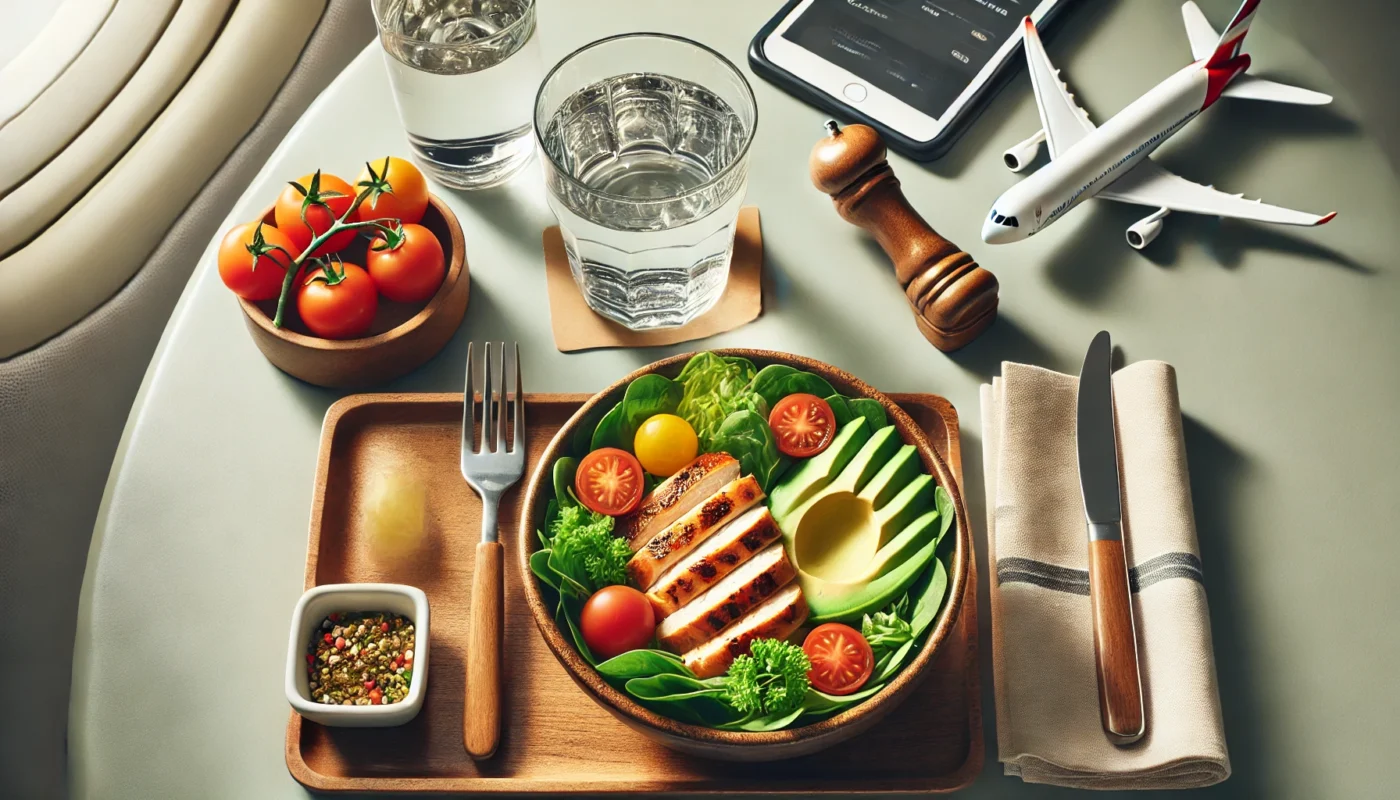Travel can be an exciting way to explore new places, meet people, and relax from daily routines. However, for individuals with hypertension, managing blood pressure while navigating the unique challenges of travel—whether by air, road, or rail—requires careful planning. Disruptions to routine, changes in diet, and travel stress can all contribute to blood pressure fluctuations, making proactive management essential for a safe and enjoyable trip. This article provides practical tips and strategies for helping you keep your blood pressure in check while traveling, addressing key factors such as diet, medications, activity, and stress management.
You May Also Like: The Role of Probiotics in Hypertension Management
Preparing for Travel: Plan Ahead for Success While Keeping Your Blood Pressure in Check
Proper planning before your trip can help mitigate potential triggers for blood pressure spikes and ensure you have the tools you need to stay on track.
1. Consult Your Healthcare Provider
Before embarking on a trip, schedule a visit with your doctor to review your hypertension management plan. Key topics to discuss include:
- Any necessary adjustments to your medication regimen.
- Tips for managing blood pressure in different climates or altitudes.
- Obtaining a letter detailing your medical condition and prescriptions, which can be helpful for security checks or emergencies.
- Evidence: A study in The Journal of Travel Medicine (2018) emphasized the importance of pre-travel consultations for chronic conditions like hypertension, noting that proactive management significantly reduces health risks while traveling.
2. Pack Smart
Create a dedicated travel kit with all the essentials for managing hypertension, including:
- Blood pressure monitor: A portable device for regular readings.
- Medications: Pack enough medication for the entire trip, plus extra in case of delays. Store these in their original packaging.
- Medical ID: Wear a bracelet or carry a card that identifies your condition and emergency contact information.
3. Research Your Destination
Understand the resources and conditions at your destination:
- Identify nearby pharmacies or healthcare facilities in case of emergencies.
- Check for significant altitude changes, as high altitudes can exacerbate hypertension.

Managing Diet on the Go
Dietary changes during travel can significantly impact blood pressure. Sodium-laden restaurant meals, airport snacks, and unfamiliar cuisines may contribute to blood pressure spikes.
1. Stick to the DASH Diet
The Dietary Approaches to Stop Hypertension (DASH) diet, which emphasizes fruits, vegetables, whole grains, lean proteins, and low-sodium foods, is an effective guide for meal planning while traveling.
- Tip: Pack DASH-friendly snacks such as unsalted nuts, whole-grain crackers, or fresh fruit to avoid unhealthy airport or gas station options.
- Evidence: A study published in The New England Journal of Medicine (1997) demonstrated that the DASH diet reduced systolic blood pressure (SBP) by 11.4 mmHg in individuals with hypertension.
2. Choose Restaurants Wisely
When dining out, look for options that allow customization. Ask for meals prepared with minimal salt, sauces on the side, or steamed vegetables instead of fries.
3. Stay Hydrated
Proper hydration helps keep blood pressure in check and reduces the risk of dehydration-related complications during travel.
- Tip: Carry a refillable water bottle and avoid sugary or caffeinated beverages, which can contribute to dehydration.
Medication Management While Traveling
Ensuring proper medication adherence is critical for keeping your blood pressure in check during your trip.
1. Maintain Your Schedule
Time zone changes can complicate medication schedules. To stay consistent:
- Stick to your home time zone for dosing if the trip is short.
- Gradually adjust your schedule if traveling across multiple time zones for an extended period.
2. Use Pill Organizers
Organizers with labeled compartments for each day and time can simplify medication management and ensure doses are not missed.
3. Avoid Skipping Doses
Even when travel activities get busy, prioritize taking medications on time. Missing doses can lead to dangerous spikes in blood pressure.
- Evidence: A study in Hypertension Research (2019) highlighted that medication adherence significantly reduces cardiovascular risks in hypertensive individuals.

Staying Active While Traveling
Physical activity is essential for managing hypertension, and incorporating movement into your travel itinerary can help counteract the effects of prolonged sitting.
1. Move During Transit
Long periods of sitting—whether on a plane, train, or car ride—can contribute to blood pooling in the legs and elevate blood pressure. Strategies include:
- Stretching or walking every hour during flights or train rides.
- Taking breaks to walk or stretch during long road trips.
- Evidence: A study in Hypertension (2015) found that breaking up prolonged sitting with light-intensity walking reduced systolic blood pressure by 5 mmHg.
2. Explore Your Destination Actively
Incorporate physical activity into your sightseeing:
- Opt for walking tours instead of bus tours.
- Rent a bike to explore the area.
- Choose accommodations with fitness facilities or nearby parks.
Managing Stress and Sleep While Traveling
Stress and poor sleep are common during travel and can negatively affect blood pressure. Taking proactive steps to minimize these factors is crucial.
1. Practice Stress Management Techniques
Travel stressors, such as navigating airports or dealing with delays, can trigger blood pressure spikes. Prepare with stress-reduction strategies:
- Practice deep breathing exercises or meditation during moments of anxiety.
- Create a travel playlist with calming music or guided relaxation tracks.
- Evidence: A randomized controlled trial published in Psychosomatic Medicine (2018) found that mindfulness-based stress reduction (MBSR) lowered systolic blood pressure by 4 mmHg and diastolic blood pressure by 3 mmHg in individuals with mild hypertension.
2. Prioritize Sleep
Sleep disruptions due to unfamiliar environments, jet lag, or noisy accommodations can affect blood pressure regulation. Tips for better sleep include:
- Packing an eye mask and earplugs to block out light and noise.
- Following your usual bedtime routine as closely as possible.
- Avoiding alcohol and heavy meals close to bedtime.

The Role of Nutritional Supplements
In addition to lifestyle strategies, certain supplements can help support cardiovascular health during travel. Below are five evidence-based options:
1. Omega-3 Fatty Acids
Omega-3s reduce inflammation and improve arterial flexibility. A meta-analysis in Hypertension (2018) showed a reduction of 4 mmHg in systolic blood pressure with omega-3 supplementation.
2. Magnesium Glycinate
Magnesium helps relax blood vessels and reduce vascular resistance. A study in Magnesium Research (2016) reported a 5 mmHg reduction in systolic blood pressure with magnesium supplementation.
3. Beetroot Powder
Rich in nitrates, beetroot powder enhances nitric oxide production, improving blood flow. A study in Nutrition Journal (2017) demonstrated that beetroot supplementation lowered systolic blood pressure by 4 mmHg.
4. Coenzyme Q10 (CoQ10)
CoQ10 acts as a potent antioxidant and supports heart function. Research in Hypertension Research (2007) found that CoQ10 supplementation reduced systolic blood pressure by 11 mmHg.
5. Hibiscus Extract
Hibiscus promotes vasodilation and reduces arterial stiffness. The Journal of Nutrition (2010) found that drinking hibiscus tea daily reduced systolic blood pressure by 6 mmHg.
Handling Emergencies
Despite careful planning, unexpected situations can arise. Knowing how to handle emergencies ensures your safety while traveling.
1. Recognize Warning Signs
Symptoms such as severe headache, chest pain, or shortness of breath may indicate a hypertensive crisis. Seek medical attention immediately if these occur.
2. Access Local Healthcare
Research the location of nearby clinics or hospitals before your trip. Many countries have medical facilities that cater to travelers.
3. Carry Emergency Contact Information
Ensure you have the contact details for your healthcare provider, as well as a list of your medications and dosages, in case you need assistance.

Conclusion
Traveling with hypertension requires thoughtful preparation and proactive management, but with the right strategies, it can be both safe and enjoyable. By consulting your healthcare provider, adhering to a heart-healthy diet, staying active, managing stress, and maintaining medication schedules, you can keep your blood pressure in check and fully enjoy your journey. Combining these practices with evidence-based nutritional supplements ensures comprehensive support for your cardiovascular health while on the go. With careful planning and attention to your health, traveling can remain a rewarding and enriching experience for individuals managing hypertension.
References
- Hypertension Research. (2019). Medication adherence and cardiovascular outcomes in hypertension. Hypertension Research. Retrieved from https://www.nature.com/hr
- The New England Journal of Medicine. (1997). The DASH diet and blood pressure reduction. The New England Journal of Medicine. Retrieved from https://www.nejm.org
- Nutrition Journal. (2017). The impact of beetroot powder on vascular health. Nutrition Journal. Retrieved from https://www.biomedcentral.com
- Psychosomatic Medicine. (2018). Mindfulness-based stress reduction and blood pressure control. Psychosomatic Medicine. Retrieved from https://journals.lww.com
- The Journal of Travel Medicine. (2018). Pre-travel consultations for chronic conditions. The Journal of Travel Medicine. Retrieved from https://academic.oup.com
Key TERMS for this article:
Hypertension, Travel Tips, Blood Pressure Management, DASH Diet, Medication Adherence, Physical Activity, Stress Management
Relevant and useful TAGS for this article:
Hypertension Travel, Blood Pressure Control, Travel Health, DASH Diet Travel, Medication Tips, Travel Stress, Physical Activity, Heart Health, Hypertension Emergencies, Travel Safety
Important Note: The information contained in this article is for general informational purposes only, and should not be construed as health or medical advice, nor is it intended to diagnose, prevent, treat, or cure any disease or health condition. Before embarking on any diet, fitness regimen, or program of nutritional supplementation, it is advisable to consult your healthcare professional in order to determine its safety and probable efficacy in terms of your individual state of health.
Regarding Nutritional Supplements Or Other Non-Prescription Health Products: If any nutritional supplements or other non-prescription health products are mentioned in the foregoing article, any claims or statements made about them have not been evaluated by the U.S. Food and Drug Administration, and such nutritional supplements or other health products are not intended to diagnose, treat, cure, or prevent any disease.

